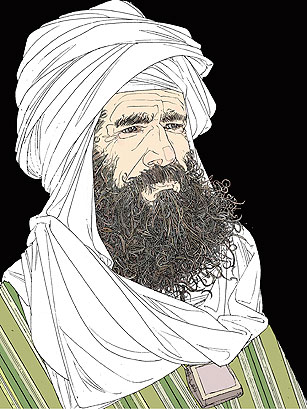
The world that Ibn Battuta experienced in his travels nearly 700 years ago was as globalized as the world we live in today
On a summer day in 1325, a 21-year-old legal scholar named Muhammad Ibn Battuta set off from his home in Tangier, Morocco, on a pilgrimage to the sacred city of Mecca. "I braced my resolution to quit all my dear ones, female and male, and forsook my home as birds forsake their nests," a much older Ibn Battuta rhapsodized in the celebrated account of his journey, the Rihla.
That journey would last nearly 30 years and cover more than 100,000 km. By the time Ibn Battuta returned to Tangier, he had traversed — by foot, by donkey, by camel and by boat — nearly the entire length of the Muslim world and beyond on a quest for knowledge and experience. And while that quest would ultimately take him as far as China (for did not the Prophet Muhammad encourage his followers to "seek knowledge, even in China"?), for the most part, Ibn Battuta kept within the boundaries of what was known at the time as Dar al-Islam, "the abode of Islam" — that region of the world where Muslims ruled and Islamic law prevailed.
As a purely geographic designation, Dar al-Islam referred to the stretch of land that fell under Muslim sovereignty, with Mecca — the "congress of the Muslim world," as Ibn Battuta termed it — pulsing at its heart. Yet for him and his contemporaries, Dar al-Islam connoted more than mere geography. It was above all else an ideal, an aspiration, a shared sense of consciousness held by a global collection of like-minded individuals who maintained more or less the same beliefs and practices and who, as such, composed a single, unified and divine community: the ummah. This is what the pilgrim and the merchant, the warrior and the peasant would have understood as the source of his or her identity. Indeed, as U.S. historian Ross Dunn notes, Ibn Battuta "was a member of the literate, mobile, world-minded elite" and would have regarded himself as a citizen "not of Morocco, but of Dar al-Islam, to whose universalist spiritual, moral, and social values he was loyal above any other allegiance."
Although Muslims made up the majority of Dar al-Islam's population, and while the norms, values and customs of the people aligned with the fundamental precepts of Islam, it was the enormous diversity of the ummah scattered across these lands that so struck Ibn Battuta. He saw things in his travels through the Muslim world that were as foreign to him as they would have been to a stranger. In Turkey, he was taken aback by the behavior of certain Muslim women who seemed to dominate their husbands. In the Maldives, he was scandalized by the clothing and customs of the natives. Across central Asia, he was constantly shocked by the practices of the Mongols that so drastically conflicted with his orthodox sensibilities. In other words, while the population of Dar al-Islam may have shared Ibn Battuta's allegiance to the One God and his Final Messenger, it in no way shared his culture, customs, habits and worldview.
What was true of the Muslim world in Ibn Battuta's time is equally true today. In fact, the diversity and eclecticism that have always marked the ummah have, over the centuries, become a veritable cornucopia of contrasting beliefs, practices, customs and traditions among the world's 1.6 billion Muslims. At the same time, mass migration and the steady flow of people across national borders have dramatically extended the reach of the ummah far beyond anything that could be defined as Dar al-Islam.
Nowadays, we call this phenomenon globalization: "the intensification of economic, political, social and cultural relations across borders," as the Danish political philosophers Hans-Henrik Holm and Georg Sorensen define it. But make no mistake: the world that Ibn Battuta experienced in his travels nearly 700 years ago was as globalized as the world we live in today.
This was in large part due to the Pax Islamica that existed under the rule of the Mongols, who had, by Ibn Battuta's time, conquered nearly the whole of Central Asia, Russia and China. By creating the largest territorial empire in history, the Mongols — who had a penchant for allowing merchants free rein in their territory — encouraged the flow of goods and people across the vast distances under their domain. With the expansion of trade routes came an increase in cultural interactions, as merchants, scholars, mystics and pilgrims — Ibn Battuta was, at one point or another, all these things during his long journey — moved freely along the Silk Road from one city to another, from one kingdom to another, from one principality to another. It was indeed the golden age of Islam, which, as historian Marshall Hodgson wrote, "came closer than any other medieval society to establishing a common world order of social and even cultural standards."